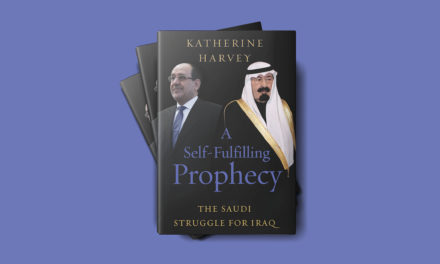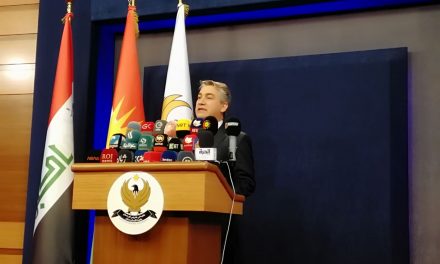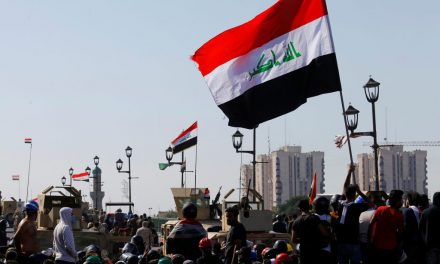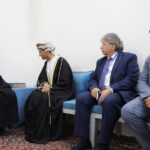(Photo: Reuters)
With the escalation of the protests in Iraq since the start of October 2019, the government’s inability to deal with the demonstrations, the resignation of Prime Minister Adil Abd Al-Mahdi, and President Barham Salih’s failure to persuade the political parties to nominate an acceptable Prime Minister by all factions, the news of the killing of Qods Force Commander Major General Qassim Soleimani and Public Mobilization Forces (PMF) Deputy Abu Mahdi Al-Muhandis, in an American airstrike just outside Baghdad International Airport has affected the region and the world and complicated the Iraqi scene in particular and the region in general. The airstrike has opened the door to unexpected consequences in the future at the political, economic, military, and security levels.
Soleimani’s absence and its impact on the Iraqi political scene
No one disagrees that Major General Soleimani wielded significant influence among the political circles in Iraq since 2003 and up until his last moments. With his political and military skills and his vast influence, he was able to establish the foundations of the political system in Iraq, especially the Shia blocs. He was always trying to get to the political parties after each election to nominate people who work on maintaining the balance in the political scene and support them. The General had a political vision through which he sought to gather the parties and pressure them towards accepting political compromises to reach an agreement. His wide range of contacts enabled him to preserve the Iranian interests even though the Iranian desires sometimes collided with the Shia blocs and their vision. The absence of Soleimani from the political scene will cast a shadow on the reality of the Shia blocs and will cause problems in the coming days.
The most prominent role the General played was after 2014 when Da’ish invaded Iraq by being on the front lines and providing Iraq with weapons, ammunition, advisors, and trainers.
Even Sunni and Kurdish blocs were not far from the influence of Soleimani. The issue of Kirkuk was not far from the ambitious political maneuvers of Soleimani. The federal government’s control over the disputed areas during the government of Haider Al-Abadi after the agreement with the Patriotic Union of Kurdistan led to the extension of the government’s influence in those areas and increased the division among the Kurdish blocs. Soleimani took advantage of this situation to achieve outstanding political gains by playing the role of the broker of this agreement.
The PMF and the absence of Al-Muhandis
The fatwa of Iraqi Shia religious authority in Najaf on June 13, 2014, asking Iraqis to volunteer in the security forces and fight against Da’ish helped to establish the PMF, which had an essential role in protecting the capital Baghdad and the liberation of areas controlled by Da’ish later in the war. This body represented a legal umbrella which allowed all the armed factions to operate under the authority of the Commander-in-Chief after the enactment of a law by the Iraqi parliament, which is what Grand Ayatollah Al-Sistani had hoped for at the beginning of the fatwa to preserve the rights of volunteers and keep them away from conflicts and political influences. Abu Mahdi Al-Muhandis helped to found the PMF and played a prominent role in administering and managing the armed factions, organizing their work, distributing them geographically in hotspots, and attaining their rights from former Prime Minister Haider Al-Abadi’s Government, who was strict towards the PMF, especially after the dispute between Al-Muhandis and Al-Abadi escalated due to a disagreement over the real number of fighters making up the PMF and issues related to the PMF budget. Al-Muhandis also worked to create a political atmosphere to push the parliament to pass a law that guarantees the rights of PMF fighters.
Despite being the deputy head of the PMF, Al-Muhandis was supervising the battles himself on the front lines. He was not isolated from the influence of General Soleimani, who gave him media and public momentum. In the absence of Al-Muhandis, the PMF lost its actual leader and the “architect of its victories,” as his supporters used to describe him. Most likely, the dispute will return to the PMF if all factions do not accept his successor, currently rumoured to be Hadi Al-Ameri. Al-Muhandis yielded significant influence over all PMF factions and had the final word inside the organization. Despite the apparent disagreements between Al-Muhandis and PMF head Falih Al-Fayyad, which became visible to the public through contradicting statements issued from their offices, the presence of General Soleimani helped make Al-Muhandis stand unchallenged.
Soleimani’s successor and Iraq
There is no doubt that the killing of General Soleimani was a shock to the Iranian leadership at various levels. He represented the political ambitions of Iran’s Ayatollah Khamenei and his winning card that was used many times in the region. After Soleimani’s death, Ayatollah Khamenei appointed Soleimani’s deputy Ismail Qaani to succeed him. Qaani does not speak Arabic, does not have an in-depth knowledge of Iraq, nor the insight of Soleimani and his ability to balance the different positions of Iraq’s factions with the opinions of Ayatollah Khamenei and the religious authorities in Najaf.
The question is how the successor of Soleimani will manage his new responsibility including the thorny issues in Iraq. The escalation of the Iranian-American conflict is, according to many, an escalation towards war and the destabilization of the region in which the rules of engagement have changed. The question remains how, and not whether all of this will impact the situation in Iraq.

Aymen Al-Faisal
Aymen Al-Faisal is a researcher and academic, with a special interest in Gulf political affairs; based in Baghdad.










